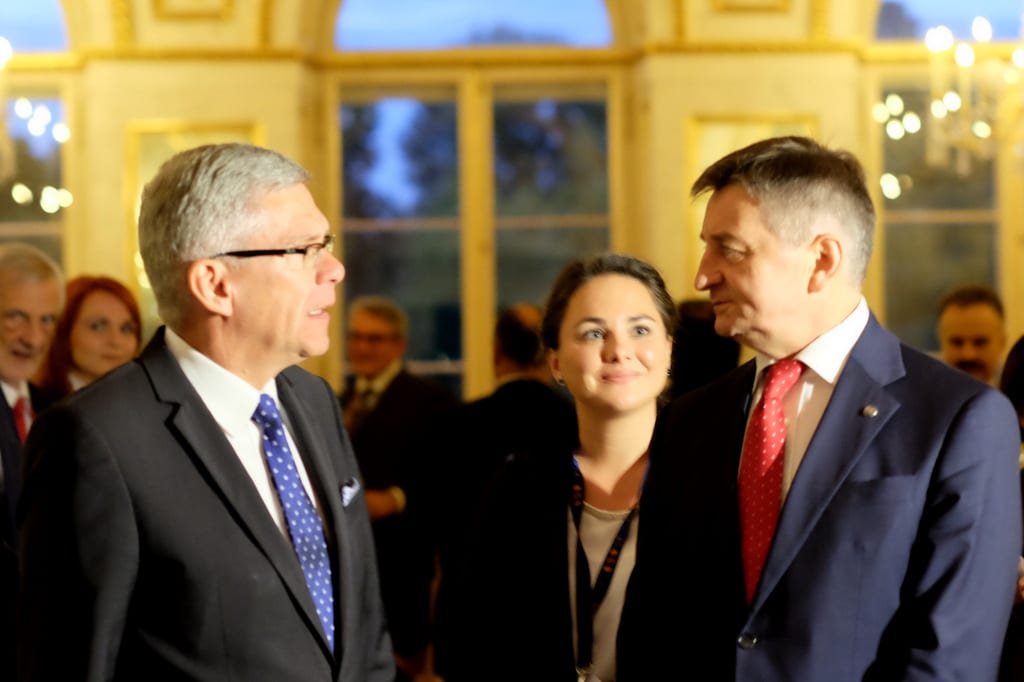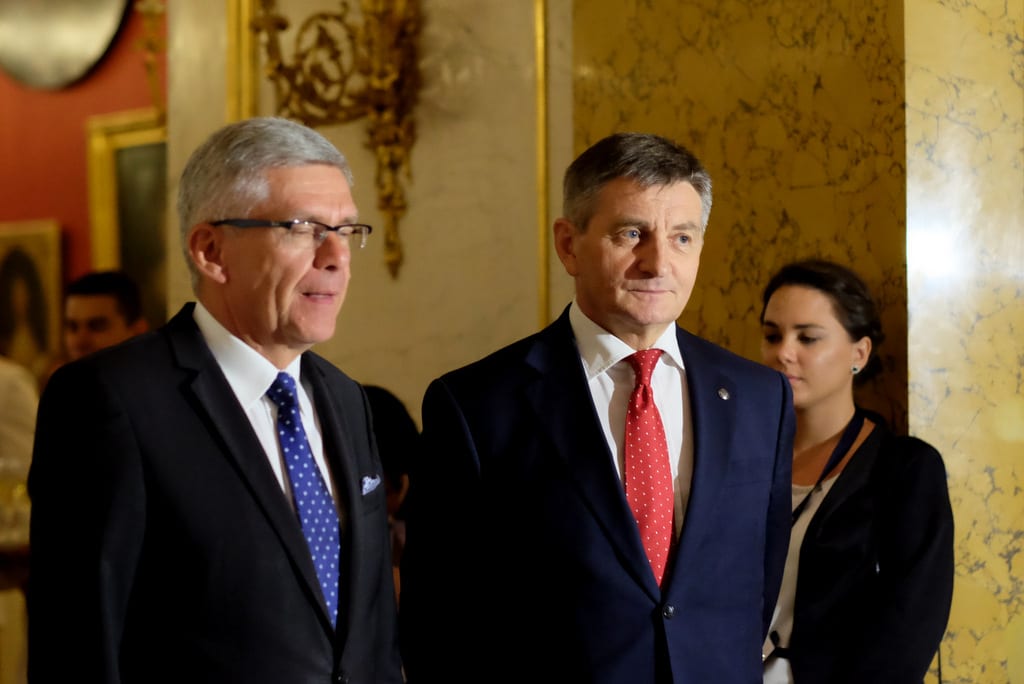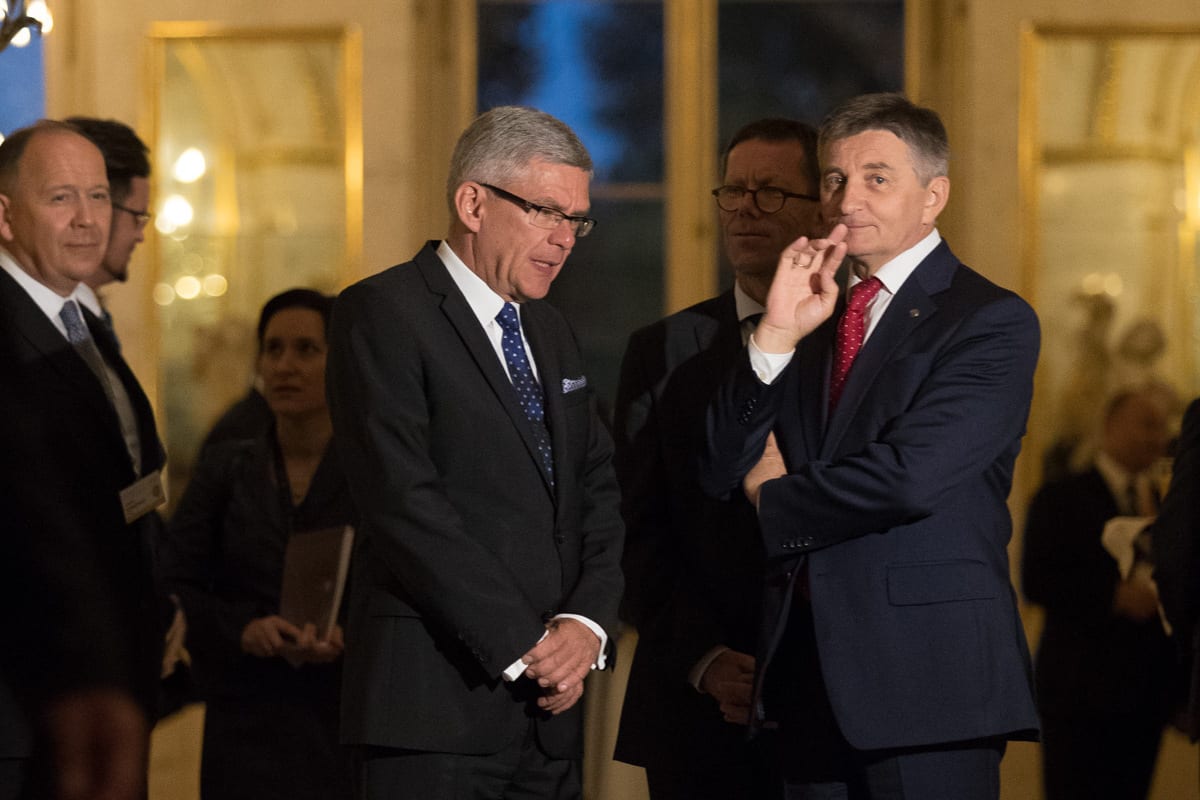Speech by Speaker of the Sejm Marek Kuchcinski at a welcome meeting with participants before the Solidarity and Sovereignty conference:
Ladies and Gentlemen Presidents of the National Parliaments
Minister
Ladies and Gentlemen Advisors
Dear Sirs
I thank the presidents of national parliaments and their delegations representing as many as 11 countries for coming to Warsaw for the parliamentary meeting Solidarity and sovereignty.
We, representatives of many nations, and at the same time residents of Central and Eastern Europe in the broadest sense, and therefore of Southern Europe and the Caucasus, are uniquely aware of the consequences of a situation where history is accelerating. Our part of Europe is in such a geopolitical place and in such a cultural space, where winds blow from the East, and from the West, influences from the South and from the North, - and all of them give rise to numerous problems, including at least two exceptionally important ones.
First, many times violent changes in the West or East meant negative changes for the wider Central and Eastern Europe. The consequence was a reduction of subjectivity, loss of sovereignty or independence. Let's remember that both world wars erupted in and about this region of Europe, which also became an arena of tension and confrontation during the Cold War.
For this reason, the title of our parliamentary meeting included the term "sovereignty".
Second, in the past, cooperation between our countries was sometimes really difficult. The struggle for sovereignty was often interpreted as an order to build hostile coalitions, or to seek the support of external powers. In both cases, such policies led to mutual hostility and even wars, to the creation of zones of influence, buffer areas, the so-called "near abroad.
A secure Central and Eastern Europe can only exist under conditions of solidarity between states throughout the region. That is why we have reached for the concept of "solidarity". In my opinion, the solidarity of countries a) guarantees the stability of the region, b) allows to build cooperation, c) gives the opportunity to pursue common interests.
Poland today speaks with a strong voice on matters of Europe and the organization and functioning of the European Union. The legitimacy of the attitude of the Polish authorities is the very positive attitude of Poles towards the European Union. We Poles know very well the negative effects of the lack of good reforms. That is why we are so actively seeking reform of the entire European Union. For this reason We invited you to Warsaw so that here, among European neighbors, we could discuss European issues.
Europe needs the European Union, just as the European Union needs Europe. The European Union also needs renewal. We are worried about its many crises, including its helplessness in the face of threats on its eastern (war) and southern (migration) flanks, and the rise of reluctance to integrate (Brexit).
The basis of cooperation in Europe should be sovereignome and solidarity countries. We support the model of the European Union as an international organization, subservient to member states, open to cooperation with neighbors. For in our view, all states on our continent are an integral part of Europe.
Today and tomorrow we will be listening closely to the opinions of parliamentary presidents and reading the views of parliamentary advisors on two major topics.
- The optimal model of cooperation in broader Central and Eastern Europe, that is, from shared values to the realization of common interests.
- Shaping policies in and towards the European Union to strengthen the region's identity and subjectivity, as well as the sovereignty of states.
Our debate should not be limited to intellectual reflection, but should be a prelude to taking action for cooperation in our region. For politics is not only about ideas and concepts, but first and foremost about programs and decisions.
So I raise a universal toast: Free with Free, Equal with Equal - to future cooperation in Central and Eastern Europe





